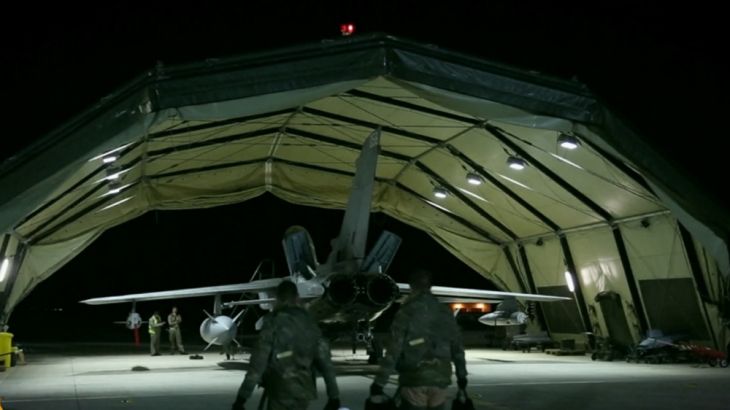
Are more air strikes exactly what ISIL wants?
British parliament authorises UK military action in Syria, portraying it as a struggle against intolerance and fascism.
It took British MPs 10 hours to debate and eventually vote in favour of the UK carrying out air strikes in Syria.
And less than an hour later, British bombers joined 10 other nations that had already mounted such operations over Syria (although by far the most strikes have been by US planes).
Keep reading
list of 4 itemsMoscow theatre attack suspects show signs of beating in court
Four men showing signs of severe beating charged over Moscow concert attack
Russia mourns Moscow concert hall attack victims as death toll rises to 137
In often emotive speeches, British parliamentarians portrayed the fight against ISIL as a struggle against intolerance and fascism.
Prime Minister David Cameron told MPs it was a question of whether the UK should go after “the terrorists in their heartlands” or “sit back and wait for them to attack us”.
But there was less discussion about how much effect air strikes have had, so far, on ISIL. Critics say increased air strikes only play into the hands of the group, drawing western nations further into this intractable war.
So, will more air strikes hinder or help ISIL? And are policymakers working on a strategy for what comes after the bombing?
Presenter: Martine Dennis
Guests:
Patrick Cockburn – Middle East analyst for The Independent. Patrick was invited by Jeremy Corbyn to brief British MPs on air strikes in Syria.
Hassan Hassan – Associate fellow at Chatham House and co-author of “ISIS: Inside the Army of Terror”.
James Strong – Fellow in foreign policy analysis and international relations at the London School of Economics.